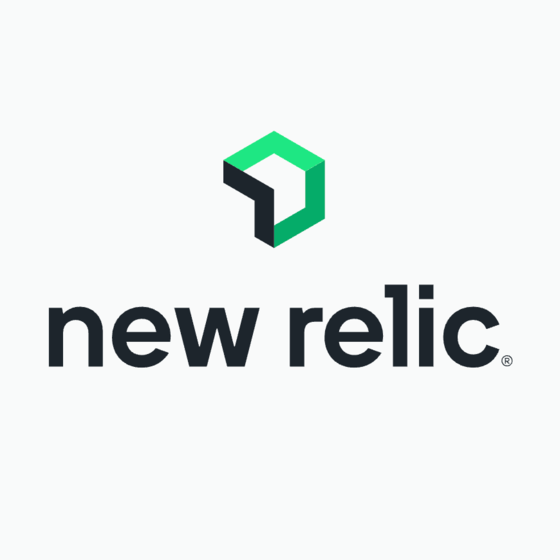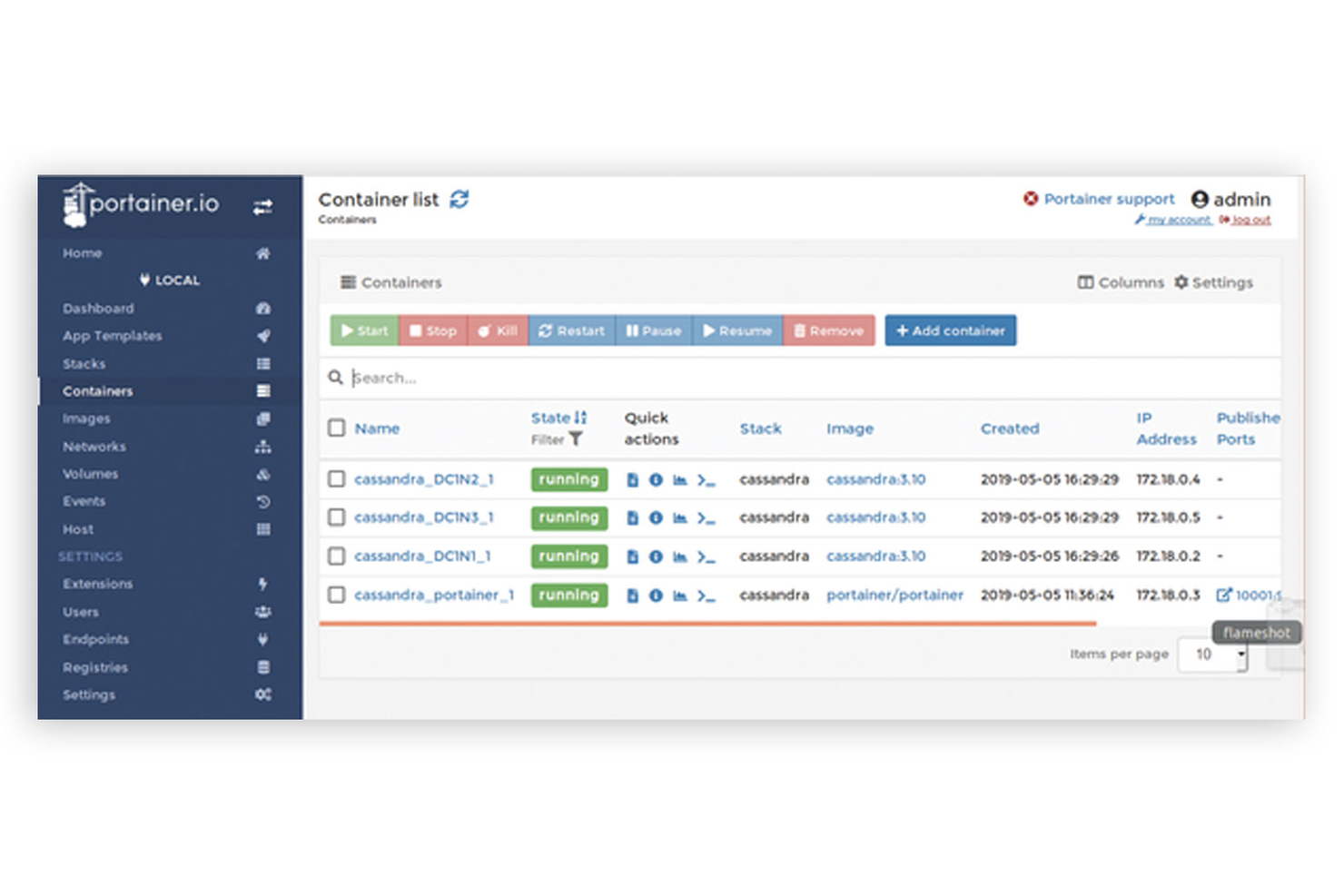10 Best Database Management Software Shortlist
Here's my pick of the 10 best software from the 20 tools reviewed.
With so many different database management software available, figuring out which is right for you is tough. You know you want to store, retrieve, and manage data more efficiently but need to figure out which tool is best. I've got you! In this post I'll help make your choice easy, sharing my personal experiences using dozens of different database management tools with various projects, with my picks of the best database management software.
What Is Database Management Software?
Database management software (DBMS) is a tool for storing, organizing, and accessing data in databases. It enables efficient handling of data, whether it's small or large in scale, structured or unstructured. DBMSs streamline the process of managing data, ensuring that it is both accessible and secure.
The key benefits and uses of DBMS include improved data sharing and security, enhanced data integration, and better data access. It facilitates the management of large volumes of data, ensuring consistency and accuracy. DBMS is essential in various fields, including finance, healthcare, education, and technology, supporting a wide range of applications from simple data storage to complex analytical processing.
Overviews Of The Best Database Management Software
Here’s a brief description of each of the best database management software on my list, showing what it does best, plus screenshots to showcase some of the features.
New Relic is an observability platform that provides application performance monitoring (APM), digital experience monitoring, infrastructure monitoring, and business observability. Its integration of AI capabilities, such as New Relic AI and AIOps, positions it as a leading solution for AI-powered full-stack monitoring.
I chose New Relic for database management software due to its extensive observability platform that encompasses over 30 capabilities and more than 700 integrations. This tool differentiates itself by offering the ability to monitor, debug, and improve the entire stack from one place. I believe New Relic is the best choice for AI-powered full-stack monitoring because it integrates application performance monitoring (APM), digital experience monitoring, infrastructure monitoring, and other critical functionalities for managing databases in an AI-enhanced environment.
Key features include the software's newly-implemented interactive application security testing (IAST) capabilities. The tool helps you spot and fix high-risk errors and vulnerabilities during the development process. By using the tool, you can troubleshoot issues in your code more quickly and ship more secure, well-tested products.
Integrations include AWS, Google Cloud, Microsoft Azure, Jenkins, CircleCI, Travis CI, and Slack. It also has an API you can use to build custom integrations.
Best for health and performance issue tracking for commercial and open source databases
ManageEngine Applications Manager, used by over 6000 businesses worldwide, is a comprehensive server and application performance monitoring software that gives deep performance insight into business-critical applications—both within the data center and on the cloud. It helps you to isolate and resolve performance issues across your entire application stack quickly—from the URL to the line of code—with minimal overhead.
Applications Manager offers out-of-the-box health and performance monitoring for 20 popular databases including RDBMS, NoSQL, in-memory, distributed, and big data stores. It supports both commercial databases such as Oracle, Microsoft SQL, IBM DB2, and MongoDB as well as open source ones like MySQL and PostgreSQL.
With its unified console offering robust monitoring, intelligent alerting and analytics capabilities, and support for over 150 technologies, Applications Manager is an ideal and affordable application performance monitoring tool for small, medium as well as large enterprise organizations. It’s easy to install and can be set up in a few minutes. The support responds to customer complaints/need for assistance and offers aid almost immediately.
ManageEngine Applications Manager costs from $395/year for monitoring up to 10 database servers. They also offer a full-fledged free trial for 30 days.
In marketing its product, DbVisualizer specifically targets developers and analysts: “DbVisualizer is the ultimate database tool for developers, analysts, and DBAs.” The software also promises some of the most essential features of data management software, such as high security and workflow customization.
DbVisualizer plans start with the Free Version with a reduced function set and self-service support. The Pro Version Basic comes with up to 60 days per year of support and will set you back $197 per user in the initial year and $69 per user in subsequent renewals. The Pro Version Premium costs $229 per person in the first year and $99 for subsequent renewals and comes with unlimited support.
Best for teams that want open-source software and security
It’s easy for any software developer to call its software the “best-of-breed open-source database monitoring solution.” However, the developers of Percona Monitoring and Management don’t end there; they add that their software “helps you reduce complexity, optimize performance, and improve the security of your business-critical database environments, no matter where they are located or deployed.”
Percona says that it “provides and supports 100% free and open-source enterprise-ready platforms.” However, you can purchase support and service for MySQL, MongoDB, MariaDB, or PostgreSQL. Support plans range between $400 and $1500.
TIBCO is a self service data visualization platform that provides you with a comprehensive analytics solution for your team. The platform equips your firm with AI and machine learning skills to quickly transform your data into useful insights. TIBCO has the ability to keep track of how your business is doing as well as detect any growing risks. The cost of TIBCO starts at $400/month for the Basic plan. The platform also offers a 30-day free trial.
According to the developers of Redis, the software delivers “Sub-millisecond data processing under any load.” Added to this, the DBMS allows users to “program any operation across data models, with … a single unified interface.”
You can start using Redis for free with the 30 MB plan. The service explains its pricing model: “Our annual subscriptions are priced according to the number of database shards required to support your dataset. A ‘database shard’ or ‘database instance’ means any Redis process provisioned by you with Redis Enterprise, including a master database process, a replica database process, or a process supporting a part of a database or clustered database.”
Apache Cassandra is a masterless design database management solution that aims to help you control large amounts of data across an array of servers. The application provides continuous data availability and allows you to add more nodes to linearly increase your transactions. Additional features of Apache Cassandra include data compression and tunable consistency. Apache Cassandra is fully open source and free to use.
The developers of DBeaver call this relational database management system the “One tool for all databases.” This is a relational DBMS that supports popular relational databases such as MySQL, PostgreSQL, SQLite, Oracle, DB2, SQL Server, MariaDB, Sybase, Teradata, Netezza, and many more.
DBeaver also supports NoSQL databases, including MongoDB, Apache Hive, Redis, and Cassandra.
The DBeaver software is licensed-based. You can choose between three editions: Lite ($10 for one month or $99 for a year), Enterprise ($23 for one month or $230 for one year), or Ultimate ($440 for one year).
The main drawcard for Raima Database Manager (RDM) is that it’s optimized to run on busy IoT devices that rely on real-time response. RDM is designed to run on any software or hardware combination. It promises to meet the market standards regarding data security.
RDM supports various web applications on different operating systems, including Windows, MacOS, and Linux.
To evaluate this product, you can download a free trial. The developers of the software indicate that “the [free] download is licensed only for evaluation of the product. If you wish to use or distribute the product, you will need to purchase a Software Development Kit and Distribution License from Raima.”
If your team relies on graphical reports such as bar, line, and pie charts, Valentina may be the best database management software for you. Valentina’s Reports Server stores data and helps teams create reports whose content can be in text, PDF, or image format.
Valentina’s pricing model is based on a single-deployment commercial license that starts at $79.99 each. Academics, non-profits, and those who want to evaluate the software can use it for free.
The Best Database Management Software Summary
| Tools | Price | |
|---|---|---|
| New Relic | From $49/user/month | Website |
| ManageEngine Applications Manager | $395/year for monitoring up to 10 database servers | Website |
| DbVisualizer | From $16.42/user/month (billed annually) | Website |
| Percona Monitoring and Management | Support plans range between $400 and $1500 | Website |
| TIBCO Spotfire | $400/month for the Basic plan | Website |
| Redis | From $7/month or $0.881/hour | Website |
| Apache Cassandra | No price details | Website |
| DBeaver | 10.0 | Website |
| Raima Database Manager | No price details | Website |
| Valentina | $79.99 each | Website |

Compare Software Specs Side by Side
Use our comparison chart to review and evaluate software specs side-by-side.
Compare SoftwareOther Database Management Software Options
Here are a few more database management solutions that didn’t make the top list.
- Database Labs
Best for teams looking for Postgres experts
- Sadas Engine
Best DBMS for huge data quantities
- Oracle
Best for teams looking for a cost-effective DBMS
- Navicat Premium 16
Best for data visualization
- ClusterControl
Best DBMS for open-source databases
- Amazon AWS
Best solution for any macOS support
- Snowflake
Best for teams that prioritize data security
- Chetu
Best for drawing critical data insights
- PostgreSQL
Best for open-source relational databases
- SolarWinds Database Performance Monitor
Best for performance monitoring of both cloud and on-premise
Key considerations for choosing Database Management Software
What do I consider when I select the best database management software? Here's a summary of my evaluation criteria:
- User Interface (UI): Will the end-users find it clean and attractive?
- Usability: Is it easy to learn and master? Does the company offer good tech support, user support, tutorials, and training? Does the software lead to process optimization? Does it work with most data types?
- Integrations: Is it easy to connect with other tools? Any pre-built integrations?
- Value for $: How appropriate is the price for the features, capabilities, and use case? Is pricing clear, transparent, and flexible?
Essential Features to look for in Database Management Software
Whether you opt for open-source or paid software, certain essential features should be present. The importance of these features varies depending on your team's specific needs, such as prioritizing real-time reports over security.
- Data Deduplication: Efficient software minimizes data duplication, optimizing server resources.
- Security: Robust software ensures data integrity and allows administrators to manage security effectively.
- Automation: Look for features that automate repetitive tasks, freeing up human resources.
- Collaboration: Choose a system that fosters in-app communication to keep everyone aligned.
- Replication: Opt for technologies that enable data replication to safeguard against data loss.
FAQs on Database Management Software for QA Teams
I know that most of you are seasoned software testers, but I always want to provide the best practices and industry knowledge for my tool review lists. Check out everything you need to know about smarter database management software.
What should QA teams consider when looking for a scalable database management software solution?
Performance, architecture, and cost are pivotal when selecting scalable database management software. A distributed architecture, for example, can efficiently handle increased data loads. Cloud scalability features like auto-scaling are also beneficial. Cost considerations should include a pay-as-you-grow model.
How important is schema design when selecting a database management software for QA testing?
Schema design is crucial for data integrity and query performance. A well-designed schema minimizes data retrieval bottlenecks and optimizes query times. Key elements to consider are normalization, indexing, and data types. Our guide on database testing provides more insights.
Can API integrations affect the performance of Azure-based database management software in a QA process?
Yes, API integrations can introduce latency and impact performance. For instance, integrating with third-party services could slow down data retrieval due to multiple API calls.
Ensure the software’s API is optimized for low-latency operations. Read more about best practices for DevOps Release Management
What programming languages are most commonly supported by leading database management software?
SQL, Python, Java, JSON, and C# are commonly supported. The language choice can significantly impact team productivity and system integration ease. For example, Python excels in data manipulation, while Java is often preferred for application development. Using these programming languages is the key to move from manual testing to automation.
What is the typical ROI (Return on Investment) for implementing a top-tier database management software?
ROI can include faster data processing, reduced manpower, and fewer errors. Automation of repetitive tasks, for instance, can free up team members for more complex tasks, thereby increasing productivity.
The purpose of digital transformation for every organization can vary, but you should aim for automation in your digital transformation where possible to improve ROI.
Are there industry-specific database management software solutions that QA teams should consider?
Yes, some solutions cater to specific sectors like healthcare or finance, offering built-in compliance features for regulations like HIPAA or GDPR.
For instance, healthcare-focused solutions may offer enhanced data encryption. Our article on best automation testing solutions provides more information.
How do database management software solutions handle data backup and recovery?
Automated backup and point-in-time recovery options are standard features. Daily backups and snapshot features, for example, can be crucial for disaster recovery. Align these features with your organization’s data retention and recovery policies. Our article on service testing provides an in-depth guide.
Can you switch database management software easily, and what are the challenges involved?
Switching involves multiple steps like data migration, downtime, and potential compatibility issues. Data migration from a SQL-based system to a NoSQL system, for example, could require significant data transformation. Challenges often include data loss risks and the need for staff training. Learning about infrastructure, testing infrastructure and test environments is a good place to start.
What Are The Benefits Of Database Management Systems And Software?
The QA process requires the collection of massive amounts of data. Different people use the data in a company’s databases. It would be impossible to manage the data without the assistance of a DBMS.
Database management software ensures that this data is easily shared between team members so that everyone is reading from the same page. It also ensures that insights from the data are easier to read, ensuring better decision-making.
One of the most fundamental reasons QA teams need data management software is that it enhances data security. This is accomplished through controlled user access.
What Are The Benefits Of Database Management Systems And Software?
The QA process requires the collection of massive amounts of data. Different people use the data in a company's databases. It would be impossible to manage the data without the assistance of a DBMS.
Database management software ensures that this data is easily shared between team members so that everyone is reading from the same page. It also ensures that insights from the data are easier to read, ensuring better decision-making.
One of the most fundamental reasons QA teams need data management software is that it enhances data security. This is accomplished through controlled user access.
Related Read: HOW TO EFFECTIVELY MONITOR SERVER PERFORMANCE
What Do You Think About These Database Management Software?
What do you think about the database testing and management tools on my list? Have you used any of them on your database engine? Have you tried others we haven't listed here like IBM Db2 or Microsoft Access? If this is the case, please use the comments section to tell us about your experience.
If you’re looking for other tools for data management, check out our list of big data analytics tools.
For more on database management software and development, subscribe to The QA Lead newsletter.
Worth Checking Out: WHAT IS KATALON RECORDER? OVERVIEW & TOUR OF FEATURES




















